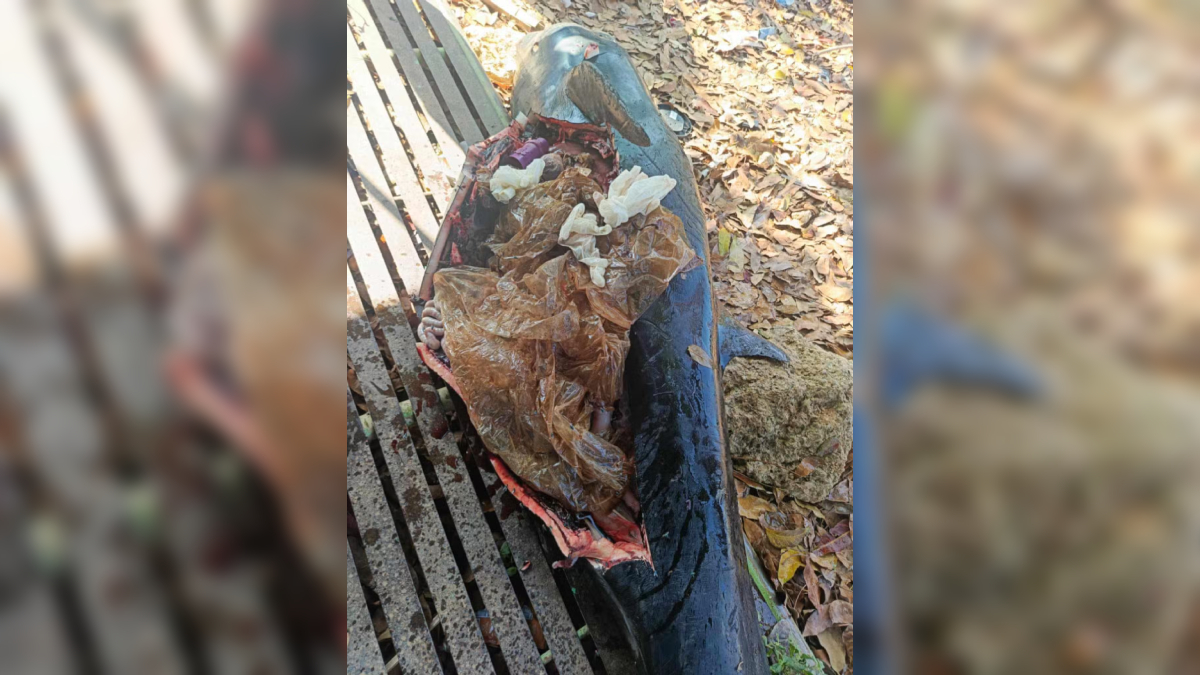A short-finned pilot whale has died in the waters off Bolinao, Pangasinan after ingesting nearly a kilo of plastic waste, highlighting the growing threat of ocean pollution to marine life.
The dolphin species, known scientifically as Globicephala macrorhynchus, was found struggling in the waters between Patar and Ilog Malino by local fishers early Tuesday, according to the Bureau of Fisheries and Aquatic Resources (BFAR) in the Ilocos region.
BFAR veterinarian Hasmin Chogsayan said the animal was weak and unable to swim properly. “It died shortly after 8 a.m. It was initially set for burial at the Bolinao Materials Recovery Facility, but I requested a necropsy due to its severely emaciated condition,” she said in an Inquirer report.
An onsite examination by Alaminos City veterinarian Arnold dela Cruz revealed the grim cause: the dolphin’s stomach was filled with plastic debris—grocery bags and pieces of a hard plastic container.
“The plastic [waste were] already blackened, suggesting these had been lodged in the stomach for a long time,” Chogsayan explained. “[The cause of death] was likely starving, [the dolphin] unable to absorb nutrients, and the hard plastic container may have been the final, fatal obstruction.”
She noted that dolphins do not chew their food and often swallow items whole, mistaking floating trash for prey like squid or jellyfish. “Once [ingested], plastic causes internal injuries and blocks the digestive system. It tricks the [dolphin’s] brain into thinking [it] is full, so it stops feeding—eventually leading to starvation,” Chogsayan added.
“It’s heartbreaking. Our oceans have become dumping grounds for human waste, and marine life is paying the price,” she said.
The death marks the sixth dolphin stranding in the Ilocos region this year, with only two successfully returned to the wild, according to BFAR.
Authorities are once again appealing to the public and fish cage operators to avoid discarding plastic waste into the sea. “This is not just an isolated incident; it’s a wake-up call. Every piece of plastic we carelessly discard has the potential to kill,” Chogsayan emphasized.






